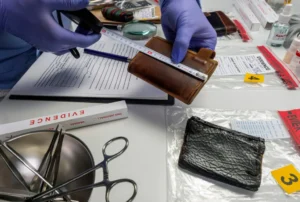 Illinois residents can be charged with tampering with evidence if the authorities believe that the accused individuals attempted to conceal, alter, falsify or destroy the evidence. This evidence can include any object or documentation that could potentially be useful to a police investigation or inquiry.
Illinois residents can be charged with tampering with evidence if the authorities believe that the accused individuals attempted to conceal, alter, falsify or destroy the evidence. This evidence can include any object or documentation that could potentially be useful to a police investigation or inquiry.
When individuals are accused of tampering with evidence, the prosecution is required to establish all of the elements of the offense. In this case, the prosecution must establish that an accused person intended to falsify, conceal or destroy the evidence with the purpose of interfering with the investigation. Further, the person must be fully aware that concealing, destroying or falsifying the evidence could result in a specific outcome. In this case, that outcome would be to have an impact on the investigation.
In order for the authorities to accuse a person of tampering with evidence, there must be evidence to tamper with. This includes any physical object that might be used in the trial, including paperwork and documents. Evidence can also include digital items, like images and even video recordings. Finally, the accused person must be aware that there is an ongoing or a potential investigation. For example, the prosecution must prove that the person somehow changed or concealed the evidence in contemplation of an investigation that could occur in the future.
Because evidence is crucial to all cases, the prosecution takes allegations of tampering very seriously. In most cases it is a felony under Illinois law. However, there are several different strategies a criminal defense attorney could utilize. For example, this includes showing that the accused person was not aware that a physical or digital object was considered to be evidence. Additionally, the attorney could also show that there was a lack of intent to tamper or obstruct.

